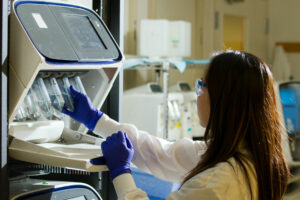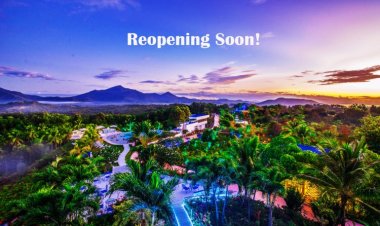Untapped job-creation potential seen in sciences, biotechnology
PHILIPPINE sciences are being held back by shortcomings in infrastructure and the dearth of incentives, limiting the sector’s capacity to unlock jobs and investment, industry representatives said. “The limited career opportunities in the biopharmaceutical sector hinder the development of future scientists and experts, preventing them from gaining experience in good clinical and manufacturing practices,” Diana […]

PHILIPPINE sciences are being held back by shortcomings in infrastructure and the dearth of incentives, limiting the sector’s capacity to unlock jobs and investment, industry representatives said.
“The limited career opportunities in the biopharmaceutical sector hinder the development of future scientists and experts, preventing them from gaining experience in good clinical and manufacturing practices,” Diana M. Edralin, president of the Pharmaceutical and Healthcare Association of the Philippines (PHAP), said in an e-mail.
“This not only undermines the potential for high-quality job creation within the country, but also represents a missed opportunity to position the nation as a clinical trial hub in Southeast Asia.”
Raul V. Destura, founder and chief executive officer of biotech startup Manila HealthTek, Inc., said the Philippines does not lack graduates and experts needed to expand its science and biotechnology sector.
“Actually, there are a lot of scientists who are really well-trained,” Mr. Destura told BusinessWorld on the sidelines of an event last month.
“It’s not really a shortage (that’s the problem,) but the lack of additional slots for them.”
Mr. Destura, who is also a medical doctor, said science graduates typically venture into the medical field or work as a research assistants or professors.
“But there is a subset of people who want to become researchers, scientists, inventors, biotechnologists. The current landscape is not enough to absorb all of these people,” he said.
Manila HealthTek, Inc. develops, manufactures, and tests portable diagnostic kits for selected infectious diseases affecting both human and animal health.
“The more we expand, the better-positioned we are to provide opportunities for our great Filipino scientists who can actually find careers in science… and not leave the country,” Mr. Destura said.
Meanwhile, Ms. Edralin, who also serves as the vice-president of the European Chamber of Commerce of the Philippines, cited the need for government support for innovation to attract more biopharmaceutical investment.
“Our country has the needed expertise, hospital facilities, and desirable demographics to support clinical trials for various conditions. However, despite these advantages, we acknowledge a concerning decline in our regional standings for clinical trials,” according to Ms. Edralin.
According to the PHAP, the Philippines used to rank second in the region in the conduct of clinical trials. It currently ranks fourth, behind Singapore, Thailand and Malaysia.
The competitiveness of Philippine-based clinical trials are also hampered by challenges in review timelines, limited infrastructure and support mechanisms, and the lack of publicly available disease registries, Ms. Edralin said.
There is also a need to harmonize regulatory pathways to streamline the approval process for clinical trials, especially for drugs for public health emergencies and rare or neglected diseases, she added.
“For competition to be vibrant, government spending must increase, pooled procurement must be implemented, and coverage to outpatient medicines must be expanded.” — Beatriz Marie D. Cruz























